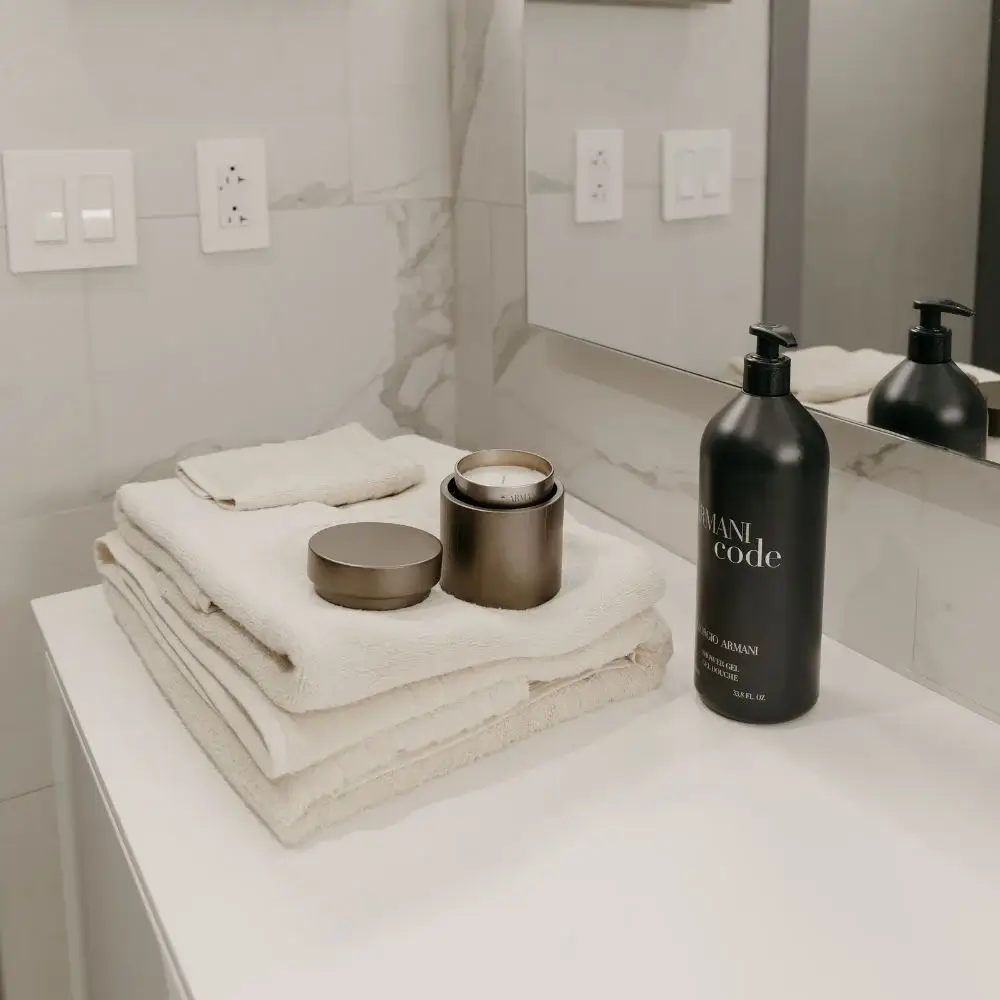Are you dealing with hard water at home? If so, then you might notice how frustrating it is to rinse off your shampoo thoroughly, leaving your hair looking dull and lifeless. Hard water contains harsh minerals, leading to build-up, hair damage, and discoloration. Fortunately, you don't have to live with the consequences of hard water on your hair. You can keep your hair smooth, shiny, and clean with the right shampoo. In this blog post, we'll share tips and tricks on choosing the best shampoo for hard water.
Understand your hair type
Before choosing a shampoo, you need to determine your hair type. Whether you have curly, straight, oily, dry, or color-treated hair, there's a shampoo that works best for you. Knowing your hair type will help narrow your options and lead you to a shampoo catering to your unique hair needs. Take notes of your hair's thickness, texture, and scalp condition. This way, you'll end up with a shampoo that will combat hard water and improve your hair's overall health and appearance.
Look for clarifying shampoos
Clarifying shampoos are known to remove buildup and impurities from hair. And clarifying shampoos is highly recommended when it comes to hard water issues. These shampoos contain ingredients that dissolve minerals and additives in the water, leaving your hair clean and refreshed. However, since clarifying shampoos can be harsh, seek ones that are gentle enough and have no harsh sulfates or parabens.
Go for chelating shampoos
Chelating shampoos are specially designed to remove metal buildup caused by hard water. They contain chelating agents that bind to mineral ions and eliminate them from your hair and scalp. This shampoo is an excellent option for people living in areas with tough water conditions. But use them occasionally since they contain more potent ingredients that can strip your hair of its natural oils.
Consider shampoos with vinegar
Vinegar is an excellent natural remedy for hard water build-up. Therefore, shampoos with vinegar as the main ingredient effectively break down mineral deposits from your hair. They work by adjusting the pH level of your hair, thus preventing tangling, breakage, and dullness. After washing, use apple cider vinegar, shampoo, and rinse your hair with diluted vinegar after washing.
Read labels and online reviews
Don't just rely on brand names and advertisements when choosing shampoos. Instead, read labels and online reviews to get more insights into the product's ingredients and effectiveness. Check the ingredients list, and avoid products with high sulfate and alcohol contents, as they tend to cause further hair damage. Also, consider the feedback of customers who have used the shampoo for hard water. Their experiences can help you in making a sound decision.
Choosing the right shampoo for hard water can be daunting, but with these tips, you can now pick a shampoo that works best for you. Remember to consider your hair type, seek clarifying and chelating shampoos, look for those with vinegar, and read labels and online reviews. Follow these tips, and you'll say goodbye to hard water issues and hello to healthy and beautiful hair.
As beauty lovers, we understand the struggle of dealing with hard water and the damage it can do to our hair. That's why we've turned to the experts - beauty editors - to help us find the best shampoo for hard water. After extensive research and review, we've found the holy grail shampoo that will leave your locks feeling clean, soft, and hydrated. Say goodbye to dull, lifeless hair and hello to your next favorite shampoo. So what are you waiting for? Click the link and give it a try!
What are the common signs of hard water damage to hair?
Common signs of hard water damage to hair include dryness, frizziness, dullness, and a lack of manageability. Hard water contains minerals like calcium and magnesium, which can leave residue on the hair shaft and scalp, causing these issues. Besides, hard water can strip away the natural oils from the hair, leading to increased breakage and brittleness. If you notice these signs and live in an area with hard water, mitigating the damage and restoring your hair's health is essential.

What ingredients should I look for in a shampoo for hard water?
When choosing a shampoo for hard water, look for ingredients that effectively remove mineral buildup. Some key ingredients to consider are chelating agents like EDTA or citric acid, which help break down and remove the minerals from the hair. Clarifying ingredients such as tea tree oil or apple cider vinegar can also be beneficial. Further, moisturizing ingredients like shea butter or argan oil can help counteract the drying effects of hard water. Opt for shampoos specifically formulated for hard water containing these beneficial ingredients.

What is the pH level of a good shampoo for hard water?
A good shampoo for hard water should ideally have a slightly acidic pH between 4.5 and 6.5. This pH range is closer to the natural pH of the hair and scalp, around 4.5 to 5.5. Maintaining a balanced pH is essential as it helps to keep the hair cuticles smooth and closed, preventing mineral buildup and damage. Shampoos with higher pH levels can lead to raised cuticles and increased susceptibility to hard water minerals. Therefore, choosing a shampoo within the recommended pH range can help maintain the health and appearance of your hair.

How often should I use a clarifying shampoo for hard water?
The frequency of using a clarifying shampoo for hard water depends on individual factors such as hair type, exposure to hard water, and the extent of mineral buildup. As a general guideline, it is recommended to use a clarifying shampoo once every one to two weeks. However, if you frequently swim in chlorinated pools or live in an area with hard water, you may need to use it more often. Pay attention to your hair's condition and adjust the frequency accordingly, as excessive use of clarifying shampoos can strip away natural oils and lead to dryness.

How long should I leave the shampoo for hard water in my hair before rinsing?
To allow the shampoo for hard water to effectively remove mineral buildup, leaving it in your hair for 2 to 3 minutes before rinsing is typically recommended. This allows the active ingredients in the shampoo to work on breaking down and removing the minerals. However, always follow the specific instructions provided by the shampoo manufacturer, as different products may have varying recommendations. Leaving the shampoo in for the recommended duration ensures optimal results and helps to restore the hair's natural shine and manageability.
Should I consult a hair specialist before using a shampoo for hard water?
While consulting a hair specialist before using a shampoo for hard water is not required, it can be beneficial, especially if you have specific concerns or unique hair conditions. A hair specialist can assess your hair's condition, provide personalized recommendations, and suggest suitable products tailored to your needs. They can also advise on proper hair care routines and other treatments that may enhance the shampoo's effectiveness. If you are still deciding which shampoo to choose or have persistent hair issues, consulting a hair specialist can help ensure you make informed decisions for your hair's health.







